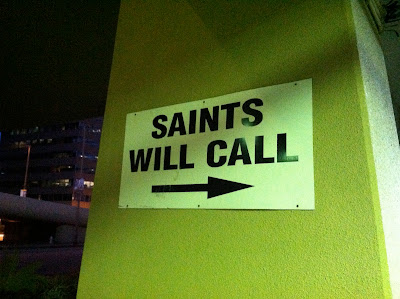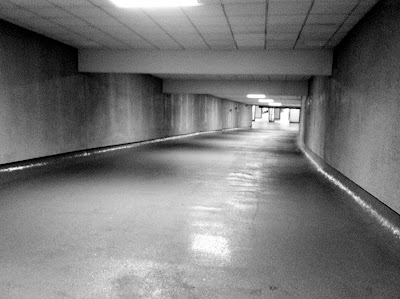"Again I saw that under the sun the race is not to the swift, nor the battle to the strong, nor bread to the wise, nor riches to the intelligent, nor favor to the skillful; but time and chance happen to them all. For no one can anticipate the time of disaster. Like fish taken in a cruel net, and like birds caught in a snare, so mortals are snared at a time of calamity, when it suddenly falls upon them." - Ecclesiastes 9:11-12
I often try to rationalize the world in black and white terms. Good and bad; yes or no; love or hate; us and them. I do it and I'm not proud of it. I know the world is far more complex.
Perhaps it is the human condition to oversimplify. After all, it's so much easier to blindly hate someone than it is to understand them; it's so much tidier to be ignorant than to risk shaking my assumptions.
And so, perhaps it's no surprise that we start to believe that the universe turns around us. God loves me, so I'm entitled to certain benefits, right? It makes sense, but reality isn't so transactional.
Sometimes, things don't work out. I struggle financially despite my hard work and cleverness. The cancer patient succumbs despite prayers for healing. We tend to think that God is to blame. The Divine is micromanaging existence down to the slightest detail. So, when things go badly, we wonder if our faith wasn't strong enough. We suspect we're being punished.
But I suspect that sometimes, bad things happen to good people, not because God is playing puppeteer, but because the world is an imperfect place. That's just how things go.
Yes, God loves you and yes, terrible things still happen. I don't know why. The race is not to the swift, nor the battle to the strong, nor bread to the wise, nor riches to the intelligent, nor favor to the skillful; but time and chance happen to us all. And that uncertainty is okay.
52 Card Pick Up
13 years ago










